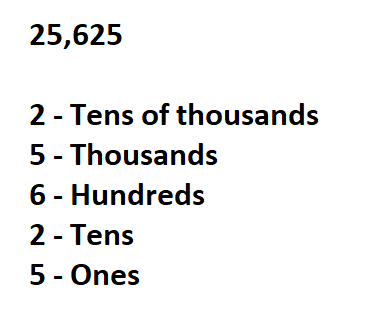Prior to discussing how to round off numbers, let us define it. Rounding off numbers is a technique of adjusting the number’s digits to a particular degree of accuracy so as to make the number easier to use during calculations.
The two main types of rounding off are rounding up and rounding down. Rounding up means rounding off a number to the next higher number. While rounding down means rounding off a number to the next lower number.
Formula to Round Off Numbers.
- Identify which place value you are rounding to.
- Look at the digit to the right of the place value you’re rounding to. If the digit in the next smallest place value is less than five, you leave the digit you want to round to as it was.
- Any digits after that number become zeros.
- If the next smallest place value is greater than or equal to five you increase the value of the digit you’re rounding to by one and just like before, any remaining digits becomes zeros.
Example:
Round off 25,625 to the nearest thousands.
First you need to know what number is in the thousands place value.

Therefore, the number in the thousands place value is 5.
The number below it as in in the hundreds place value is 6, since its greater than 5, we will add 1 to 5 to get six.
Then the other numbers as in 6, 2 and 5 will become zeros.
In conclusion our number 25,625 rounded off to the nearest thousands will be;
= 26,000

